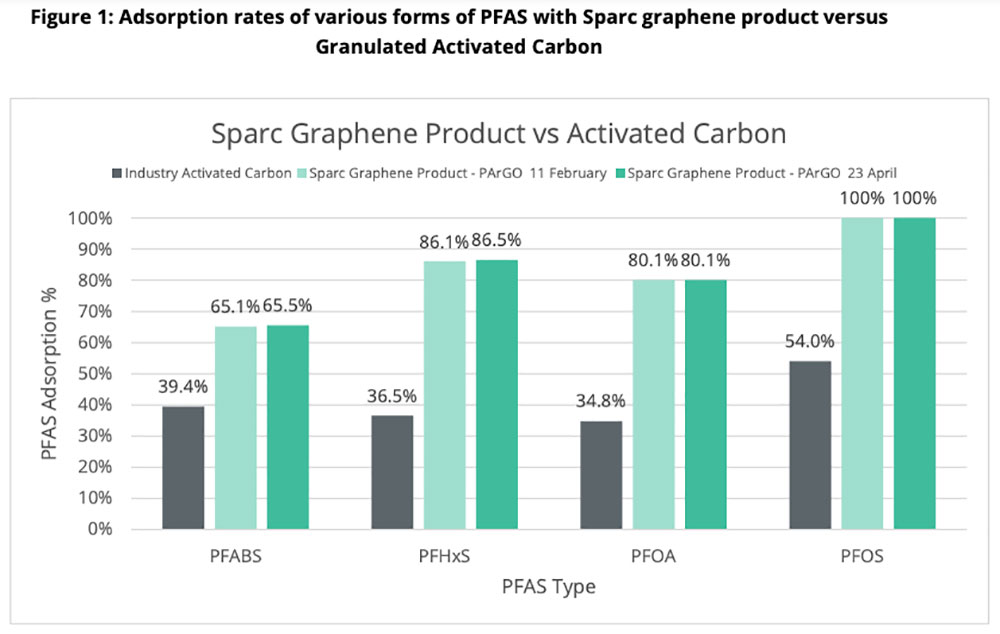Sparc moves closer to commercialisation following ‘outstanding’ PFAS adsorption testing

Pic: Schroptschop / E+ via Getty Images
Sparc Technologies’ (ASX:SPN) graphene-based PFAS adsorbent again outperforms the industry-leading alternative.
Light, thin and flexible, 200 times stronger than steel, highly conductive, hydrophobic and anti-microbial – graphene is a new generation super material with endless applications.
One of these applications is remediating contaminated sites.
Per- and polyfluoroalkyl substances (PFAS) are a group of potentially harmful man-made chemicals used in a wide range of products.
PFAS contamination of large sites remains a significant global issue, Sparc says, with currently no viable remediation solutions.
And it’s big business. US Defence alone has contaminated PFAS sites exceeding $US2 billion in remediation costs.
Without remediation, PFAS will persist in the natural environment and can cause significant human and animal health issues, where it has been shown to cause reproductive and developmental, liver and kidney, and immunological effects.
As part of its strategy to pioneer new graphene tech for a cleaner, greener and healthier world, Sparc is testing a proprietary-modified reduced Graphene Oxide (PArGO) adsorbent to clean up PFAS contamination.
Following initial testing, PArGO has again demonstrated consistently higher performance than an industry-leading activated carbon (GAC) water treatment for all tested PFAS materials, Sparc says.

These additional test results are very similar to the successful earlier round of results previously released, demonstrating repeatability of the process methodology.
This gives Sparc “significant confidence” with which to progress commercial negotiations.
Testing will now commence on remediation of PFAS contaminated water and immobilisation of PFAS in soil samples, the company says.
“To have repeatability of results is a significant step for Sparc, particularly as we move towards commercialisation and in entering discussions with organisations working with and impacted by PFAS,” Sparc managing chief exec Mike Bartels says.
“This is a substantial milestone in demonstrating the effectiveness of graphene in the field.”
The company has now entered discussions with remediation companies and organisations with PFAS issues, with the aim of jointly developing graphene-based solutions to adsorb PFAS from contaminated sites.
This article was developed in collaboration with Sparc, a Stockhead advertiser at the time of publishing.
This article does not constitute financial product advice. You should consider obtaining independent advice before making any financial decisions.
Related Topics
UNLOCK INSIGHTS
Discover the untold stories of emerging ASX stocks.
Daily news and expert analysis, it's free to subscribe.
By proceeding, you confirm you understand that we handle personal information in accordance with our Privacy Policy.








